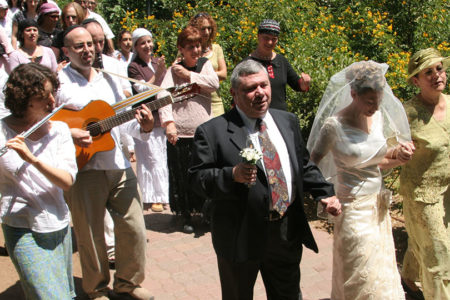The Sound of the Shofar
When Jewish people hear the shofar, they know it’s a call to their people. In ancient days, it called them to prayer, safety, or war or to hear God’s Word. In June 1967, Rabbi Shlomo Goren blew the shofar atop the Temple Mount after Israeli paratroopers reunited the city of Jerusalem. It was a signal to all who heard it that the Jewish people’s 19 years of exile from their holiest site on Earth had come to an end, and it called them to come home.
In September, they will hear the shofar blast tekiah, shevarim, teruah, and tekiah gedolah when they assemble in synagogues around the world to celebrate the High Holidays: Rosh Hashanah and Yom Kippur (Day of Atonement), which begin at sundown on the 16th.
So significant is the blowing of the shofar (usually a ram’s horn) that these are the only two holidays when the blasts are heard. Tekiah is a long, single blast; shevarim, three short blasts; teruah, nine rapid staccato blasts; and tekiah gedolah, a single blast held as long as possible.
Though called Rosh Hashanah (“head of the year”) by the rabbis, the Bible calls the time “a memorial of blowing of trumpets” (Lev. 23:24). In the book of Joshua, God instructed seven priests each to carry a shofar as they circled the city of Jericho. Then they blew a long blast and the walls fell (Josh. 6:2–5).
Rabbinic literature teaches that, when the shofar sounds on Rosh Hashanah, three books in heaven are opened: one containing the names of the righteous, one the “semi-righteous,” and one the thoroughly wicked. The challenge, therefore, is to repent and hope your name is placed with the righteous.
To that end, observant Jews use the 10 days between Rosh Hashanah and Yom Kippur, called the Ten Days of Teshuvah (“repentance”), to try to tip the scales in their favor.
Some practice Kaparot (“atonements”), a ritual that involves swinging a chicken over one’s head and symbolically transferring one’s sins to the chicken, while saying, “This is my exchange, this is my substitute, this is my atonement. This chicken will die, but I am going to a good long life and to peace.” The chicken is then killed and given to the poor. Much charity is given and good works done during these 10 days in hopes of being written in the Book of Life for another year.
Another practice is Tashlich, meaning “to cast.” People go to a lake or river, recite a special prayer, and symbolically cast their sins into the moving water in hopes of starting the new year fresh. As the Chabad organization writes, Tashlich “serves as a crucial part in the process of repenting and returning to G-d [sic] in purity. May we all shake ourselves from sin and be signed and sealed in the Book of Life for a good and sweet new year!”1
On Rosh Hashanah the books are opened; on Yom Kippur they are sealed. The Day of Atonement concludes with one long blast of the shofar and the words, Next year may we be in Jerusalem!2
“You don’t hear the sound of the shofar,” a Jewish man explained, “unless it’s significant. Something huge is happening.”
There is also a solemn association with the sounding of a shofar for expectant Christians. It is related to the coming of our Savior to call His people home:
For the Lord Himself will descend from heaven with a shout, with the voice of an archangel, and with the trumpet of God. And the dead in Christ will rise first. Then we who are alive and remain shall be caught up together with them in the clouds to meet the Lord in the air. And thus we shall always be with the Lord (1 Th. 4:16–17).
That will be a significant blast indeed.
ENDNOTES
- Dinka Kumer, “What Is Tashlich?” <chabad.org/holidays/JewishNewYear/template_cdo/aid/564247/jewish/What-is-Tashlich.htm>.
- “Neilah, the Closing Services,” <chabad.org/holidays/jewishnewyear/template_cdo/aid/5349/jewish/Closing-Services.htm>.
Contributors to this article were Peter Colón, Steve Herzig, and Lorna Simcox.








Do you still mail Israel My Glory? I’d like to subscribe. I used to get it and miss it.
Yes, we do have a print version of Israel My Glory magazine. If you’d like to renew your print subscription, please visit our online store at https://store.foi.org/subscribe/israel-my-glory-print.
I really enjoy the articles that posted